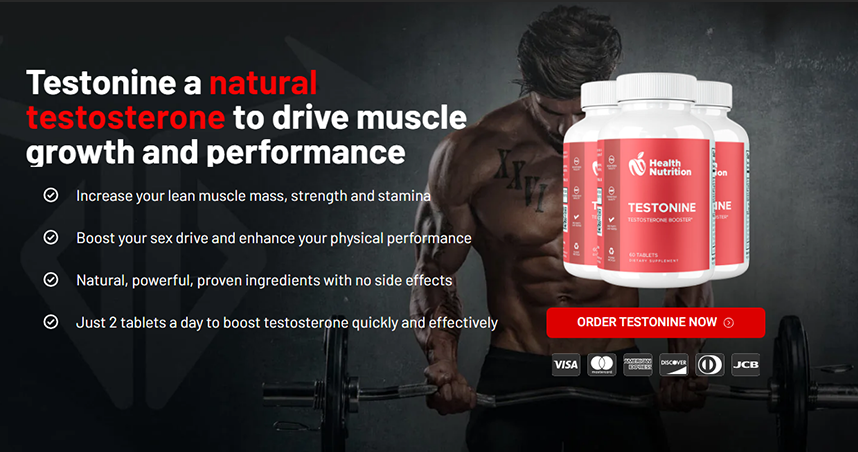
Your sex drive is an essential part of your overall well-being, but it’s not uncommon to experience a dip in desire at some point. Often, the culprit lies in testosterone levels—the hormone that fuels not just muscle growth but also your libido. By understanding the relationship between testosterone and sexual desire, you can take proactive steps to naturally restore balance and reignite your passion.
Contents
Understanding the Connection Between Testosterone and Libido
Testosterone is often called the “male hormone,” but its role extends far beyond building muscle and influencing energy levels. When it comes to libido, testosterone acts as the key driver of desire, arousal, and performance.
How Testosterone Influences Libido
Testosterone impacts the brain’s ability to respond to sexual stimuli. Low levels can reduce the frequency of arousal and overall interest in sex, while healthy levels can heighten desire and improve sexual satisfaction.
Signs of Low Testosterone Affecting Libido
Low testosterone can manifest in various ways, including reduced interest in intimacy, difficulty maintaining erections, and a general sense of fatigue or lack of motivation.
Example
Mike, a 42-year-old teacher, found himself avoiding intimacy with his partner, feeling exhausted at the end of each day. After addressing his low testosterone, he noticed a renewed sense of desire and closeness in his relationship.
Common Causes of Low Testosterone
Identifying the root causes of low testosterone is critical for finding the right solutions. Several factors can contribute to decreased testosterone levels, affecting libido in the process.
Stress and Cortisol Levels
Chronic stress elevates cortisol, a hormone that suppresses testosterone production. Over time, this imbalance can significantly reduce libido.
Poor Diet
Deficiencies in key nutrients like zinc, magnesium, and Vitamin D can negatively impact testosterone production, reducing sexual desire and energy.
Lack of Physical Activity
Sedentary lifestyles can lead to weight gain and hormonal imbalances, both of which are linked to lower testosterone levels.
Example
Tom, a 38-year-old desk worker, noticed a lack of energy and diminished libido. After incorporating regular exercise and improving his diet, his testosterone levels and sex drive improved significantly.
Foods That Naturally Boost Testosterone and Libido
Your diet plays a vital role in supporting testosterone production. Certain foods can provide the nutrients your body needs to maintain hormonal balance and enhance libido.
Zinc-Rich Foods
Oysters, lean meats, and pumpkin seeds are excellent sources of zinc, which is essential for testosterone production and overall sexual health.
Healthy Fats
Avocados, olive oil, and nuts provide monounsaturated fats that support hormone production. Don’t shy away from dietary fats—they’re your testosterone’s best ally.
Leafy Greens
Spinach and kale are rich in magnesium, a mineral that increases free testosterone levels and supports overall energy and libido.
Example
David, a 45-year-old business owner, started incorporating zinc-rich foods into his meals. Within weeks, he felt more energized and noticed an increase in his libido.
Natural Testosterone Boosters for Enhanced Libido
In addition to a balanced diet, natural testosterone boosters can help you optimize your hormone levels and improve sexual desire.
Tongkat Ali
This Southeast Asian herb, also known as “longjack,” is a proven testosterone booster that enhances libido and improves sexual performance.
Maca Root
A Peruvian superfood, maca root is renowned for its ability to balance hormones and increase energy, making it a favorite for boosting libido.
Fenugreek
Fenugreek contains compounds that naturally increase testosterone and improve both desire and satisfaction in the bedroom.
Example
After adding Tongkat Ali supplements to his routine, Chris felt more confident and experienced a noticeable boost in his sex drive.
Lifestyle Changes to Improve Testosterone and Libido
Small changes to your daily routine can have a big impact on your testosterone levels and overall sexual health.
Exercise Regularly
Strength training and high-intensity interval training (HIIT) are particularly effective for boosting testosterone. Regular exercise also improves confidence and stamina.
Manage Stress
Chronic stress suppresses testosterone production. Practices like meditation, yoga, or even taking time to relax can help manage stress and improve libido.
Prioritize Sleep
Testosterone production peaks during deep sleep. Aim for 7-9 hours of quality rest each night to support hormone balance and sexual health.
Example
Mark, a 50-year-old lawyer, improved his sleep hygiene and started weightlifting three times a week. Within months, his energy and libido were revitalized.
Tracking Progress and Staying Consistent
Improving testosterone and libido is a gradual process. Tracking your progress and staying consistent will help you achieve lasting results.
Monitor Your Energy and Mood
Pay attention to how you feel daily, both in terms of energy and libido. Use a journal to track your progress and identify what works best for you.
Be Patient
Natural solutions take time to show results, but with consistency, the improvements will become noticeable and sustainable.
Example
Steve, a 60-year-old retired athlete, committed to dietary changes and regular exercise. Over time, his libido and overall sense of well-being improved dramatically.
By understanding the connection between testosterone and libido and taking steps to optimize your hormone levels, you can naturally enhance your desire and improve your overall quality of life. Start incorporating these strategies today and experience the benefits of a healthier, more passionate you.

